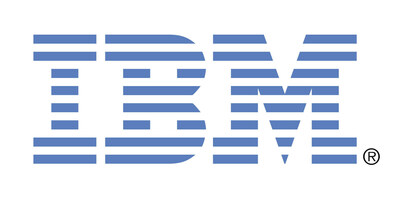Given the rapid development of quantum computers, the US National Institute of Standards and Technology (NIST) is releasing new algorithms developed by IBM in collaboration with industry partners to protect data from potential quantum attacks
13 August 2024

YORKTOWN HEIGHTS, NY, 13 August 2024 /PRNewswire/ — Two algorithms developed by IBM (NYSE: IBM) have been officially formalized in the world’s first three standards for post-quantum cryptography, published today by the U.S. Department of Commerce’s National Institute of Standards and Technology (NIST).

The standards include three post-quantum cryptographic algorithms: Two of them, ML-KEM (originally known as CRYSTALS-Kyber) and ML-DSA (originally CRYSTALS-Dilithium), were developed by IBM researchers in collaboration with several partners from industry and academia. The third published algorithm, SLH-DSA (originally submitted as SPHINCS+), was co-developed by a researcher who has since moved to IBM. In addition, a fourth algorithm developed by IBM, FN-DSA (originally called FALCON), was selected for future standardization.
The official release of these algorithms is a critical milestone in protecting the world’s encrypted data from cyberattacks that might be attempted using the unique power of quantum computers, which are becoming increasingly cryptographically relevant. This is the point at which quantum computers will have enough computing power to crack the encryption standards that underlie most of the world’s data and infrastructure today.
“IBM’s mission in quantum computing is twofold: to bring useful quantum computing to the world and to make the world quantum safe. We are excited by the incredible progress we have made with today’s quantum computers, which are used in global industries to investigate problems as we work toward fully error-corrected systems,” said Jay GambettaVice President, IBM Quantum. “However, we recognize that these advances could herald a transformation in the security of our most sensitive data and systems. NIST’s publication of the world’s first three post-quantum cryptography standards represents a significant step in the effort to build a quantum-safe future alongside quantum computing.”
As an entirely new branch of computing, quantum computers are rapidly evolving into useful and large-scale systems, as evidenced by the achieved and planned hardware and software milestones on IBM’s Quantum Development Roadmap. For example, IBM expects to ship its first error-corrected quantum system by 2029. This system is designed to perform hundreds of millions of quantum operations, delivering accurate results for complex and valuable problems currently out of reach of classical computers. Looking ahead, IBM’s roadmap includes plans to scale this system to over a billion quantum operations by 2033. As IBM works toward these goals, the company has already equipped professionals in healthcare and life sciences, finance, materials development, logistics, and other fields with utility-scale systems so they can apply and scale their most pressing challenges to quantum computing as it advances.
However, the advent of more powerful quantum computers could bring risks to today’s cybersecurity protocols. As their speed and error-correcting ability increase, they will also likely be able to crack today’s most widely used cryptographic schemes, such as RSA, which has long protected global data. Since work began several decades ago, IBM’s team of the world’s leading cryptographic experts has continued to lead the industry in developing algorithms to protect data from future threats that will now eventually replace today’s encryption schemes.
NIST’s newly released standards are designed to protect data exchanged over public networks and digital signatures for identity authentication. Now that they are formalized, they will serve as a blueprint for governments and industries worldwide to begin adopting post-quantum cybersecurity strategies.
In 2016, NIST invited cryptographers worldwide to develop and submit new, quantum-safe cryptographic schemes to be considered for future standardization. In 2022, out of 69 submissions selected for review, four encryption algorithms were selected for further evaluation: CRYSTALS-Kyber, CRYSTALS-Dilithium, Falcon, and SPHINCS+.
In addition to ongoing evaluations toward publication of Falcon as the fourth official standard, NIST continues to identify and evaluate additional algorithms to expand its toolkit of post-quantum cryptographic algorithms, including several others developed by IBM researchers. IBM cryptologists are among the pioneers in extending these tools, including three newly submitted digital signature schemes that have already been accepted for review by NIST and are in the first round of evaluation.
As part of its mission to make the world quantum safe, IBM continues to integrate post-quantum cryptography into many of its own products, such as IBM z16 and IBM Cloud. In 2023, the company unveiled the IBM Quantum Safe roadmap, a three-stage plan that sets out the milestones on the path to increasingly advanced quantum-safe technology and is defined by the phases of discovery, observation and transformation. In addition to this roadmap, the company also introduced IBM Quantum Safe Technology and IBM Quantum Safe Transformation Services to help clients on their journey to quantum security. These technologies include the introduction of Cryptography Bill of Materials (CBOM), a new standard for capturing and exchanging information about cryptographic assets in software and systems.
For more information about IBM Quantum Safe technology and services, see: https://www.ibm.com/quantum/quantum-safe.
About IBM
IBM is a leader in global hybrid cloud, AI and consulting capabilities. We help clients in more than 175 countries leverage insights from their data, streamline business processes, reduce costs and gain a competitive advantage in their industries. More than 4,000 government and corporate organizations in critical infrastructure sectors such as financial services, telecommunications and healthcare rely on IBM’s hybrid cloud platform and Red Hat OpenShift to execute their digital transformation quickly, efficiently and securely. IBM’s breakthrough innovations in AI, quantum computing, industry-specific cloud solutions and consulting provide our clients with open and flexible options. All of this is supported by IBM’s long-standing commitment to trust, transparency, accountability, inclusivity and service. For more information, visit ibm.com.
Media contact:
Erin AngeliniIBM
[email protected]
Chris NayIBM
[email protected]
Source: IBM

